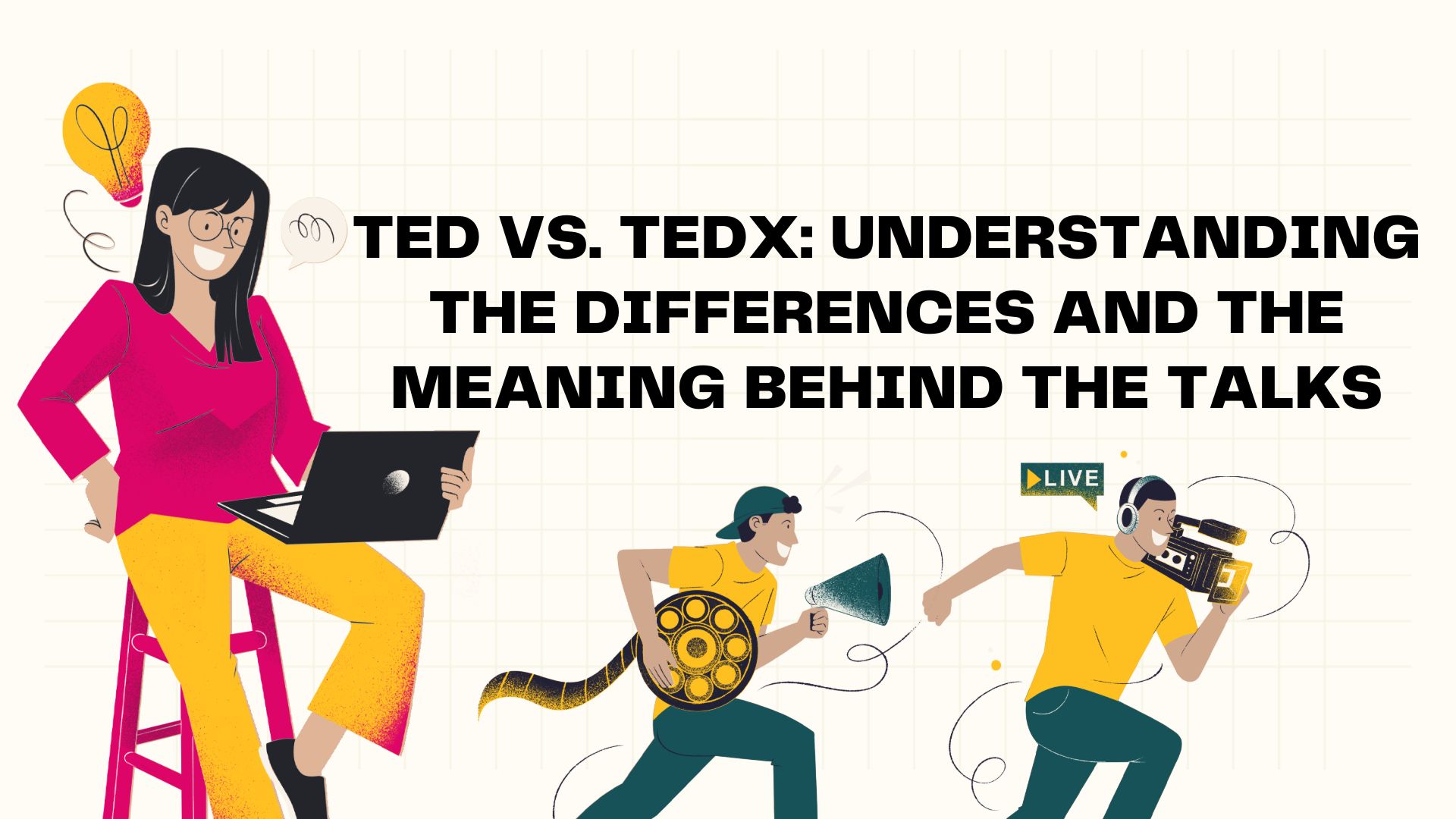TED Talks have become a global phenomenon, known for spreading “ideas worth spreading” through powerful, engaging presentations. However, there’s often confusion between TED and TEDx. While both serve the mission of sharing knowledge, they operate differently in terms of format, organization, and accessibility. In this blog, we’ll explore the differences between TED and TEDx, and what each brings to the table.
What is TED?
TED stands for Technology, Entertainment, and Design. It began as a conference in 1984 with the goal of sharing groundbreaking ideas across these three fields. Since then, TED has expanded its focus to cover almost every topic imaginable—from science and business to global issues—in more than 100 languages. TED Talks are delivered by leading experts, thought leaders, and innovators who are invited to present at the annual TED conference or TED-related events.
Key Features of TED:
- Exclusive and Curated: TED is known for its exclusivity. The main TED conference is by invitation only, and speakers are carefully curated based on their expertise and the potential impact of their ideas.
- High Production Quality: TED Talks are known for their polished, high-quality presentations, complete with professional stage setups, lighting, and video production.
- Strict Time Limit: TED Talks are capped at 18 minutes, a length determined to be short enough to hold viewers’ attention while being long enough to dive deep into complex topics.
- Global Reach: Talks are made available to the public through TED.com and YouTube, reaching millions of viewers worldwide.
What is TEDx?
TEDx events are independently organized TED-like conferences that operate under a free license granted by TED. While they follow the general principles of TED, TEDx events are planned and coordinated by volunteers at the local level, aiming to bring the TED experience to a broader audience.
Key Features of TEDx:
- Community-Driven: TEDx events are organized by individuals or communities who want to share ideas in the TED format locally. These events are independently run but must adhere to certain guidelines provided by TED.
- Varied Speakers and Topics: TEDx events feature a diverse range of speakers, including local voices, emerging experts, and even students. The variety ensures that the content is relevant to the local audience.
- Less Formal Production: While TEDx talks strive for high-quality presentations, the production standards can vary widely, from near TED-level quality to more modest setups.
- Accessible to All: Unlike the exclusive TED conferences, TEDx events are open to the public and often affordable, making the experience accessible to a wider audience.
Differences Between TED and TEDx
Understanding the distinctions between TED and TEDx can help you appreciate the unique value each format offers:
- Scope and Scale: TED events are large-scale and feature globally recognized speakers, while TEDx events are localized, focusing on community-driven topics.
- Speaker Selection: TED speakers are often prominent figures or pioneers in their fields, while TEDx speakers can be anyone with a compelling idea or story to share.
- Production Quality: TED talks are known for their uniform, high production values, whereas TEDx events can vary significantly in terms of production quality.
- Accessibility: TED events are exclusive and costly to attend, whereas TEDx events are typically more accessible and affordable.
- Licensing and Control: TEDx events operate under a license from TED but are independently organized, allowing for a greater diversity of topics and speakers.
The Meaning and Impact of TED and TEDx
Both TED and TEDx share a common mission: to spread ideas that can change the world. TED provides a global platform for the most influential thinkers and doers, while TEDx empowers communities to engage with these ideas at a local level. Together, they create a vast ecosystem of knowledge sharing that transcends borders, making cutting-edge ideas accessible to everyone, everywhere.
Enhance Your TED and TEDx Experience with VOMO AI
For those looking to get the most out of TED and TEDx talks, VOMO AI offers an innovative solution. By allowing users to import YouTube links, including TED and TEDx videos, VOMO AI can transcribe the content and unlock even more value from these insightful talks. Click here to learn how to transcribe YouTube videos with VOMO AI.
How VOMO AI Can Help:
- Transcribe TED Talks: Import YouTube links of your favorite TED or TEDx talks into VOMO AI to generate accurate transcripts, making it easier to reference, quote, or share key points.
- Ask AI for Summaries and Insights: Use VOMO AI’s Ask AI feature, powered by ChatGPT-4O, to summarize long talks, translate content, or even rephrase ideas in a way that’s tailored to your specific needs.
- Content Creation and Repurposing: VOMO AI enables you to repurpose TED content for blogs, presentations, or social media posts by providing concise summaries and extracting key insights.
By integrating VOMO AI into your learning and content creation process, you can easily convert TED and TEDx talks from audio to text or speech to text, creating accurate YouTube transcripts and detailed AI meeting notes. Whether you’re working with dictation, voice memos, or video to text, VOMO AI’s advanced AI models help turn inspiration into actionable insights. Explore the power of VOMO AI today and make the most of every TED moment!


